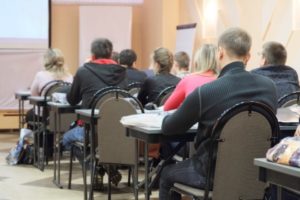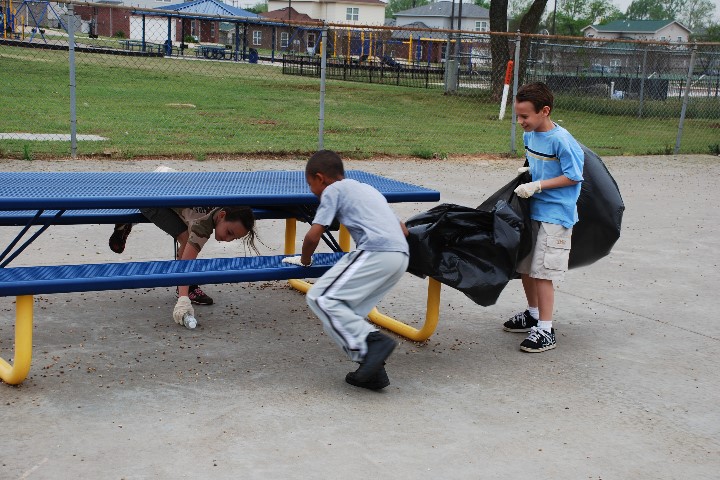Valor Club students in Oregon collect litter around their school grounds. This is only one of Nyssa Elementary School's initiatives to make character a priority.


Valor Club students in Oregon collect litter around their school grounds. This is only one of Nyssa Elementary School’s initiatives to make character a priority.
Principal Matt Murray told The Argus Observer that the school faced misbehavior problems with its 4th graders last year. “We knew we needed to be proactive about behavior,” he said.
Valor Club is a character building group. Teachers recommend the participation of interested students, who perform such service projects as sweeping bathrooms or picking up trash. School counselor Bobby DeLeon said 12 students are signed up for the Valor Club, with many more interested in joining.
Principal Murray said the school began Circle Time sessions at all grade levels this year. Students gather around and are given a chance to air out their feelings and release pent-up emotions. Sessions typically are performed two or three times a week, at the teacher’s discretion.
Circle Time sessions have been coupled with a program called Toolbox, by Dovetail Learning, which—according to a program description—teaches children 12 inner skills to help with self-awareness, self-management, healthy relationships, and responsible decision-making. Students use the breathing tool, for example, to calm themselves before acting irrationally.
Nyssa school leaders have committed to making character a priority. They also knew that they needed to try to measure their impact. One way that they are doing this is through a school climate survey that asks whether students feel that they belong.
A sense of belonging—beyond being good itself—can strengthen the moral culture of the school, according to Richard Fournier. Fournier writes in The Content of Their Character, an upcoming publication from the Institute for Advanced Studies in Culture, what he observed in his field research: “One common goal among the schools’ administrators, often acknowledged by teachers, was to create a sense of belonging among students and staff. This sense of belonging built trust, which in turn gave teachers and administrators more clout when pointing students in the right directions.”
Nyssa school leaders are taking an intentional, multi-pronged approach to addressing behavior challenges and building character. The students who volunteer to pick up litter around the school now have a greater sense of belonging and of pride in their school.
Literature can provide another opportunity for a multi-faceted approach to building a sense of belonging. Facing History and Ourselves offers a lesson for middle school students that begins with a story to help students think through conformity, peer pressure, and belonging.
For further reading on CultureFeed